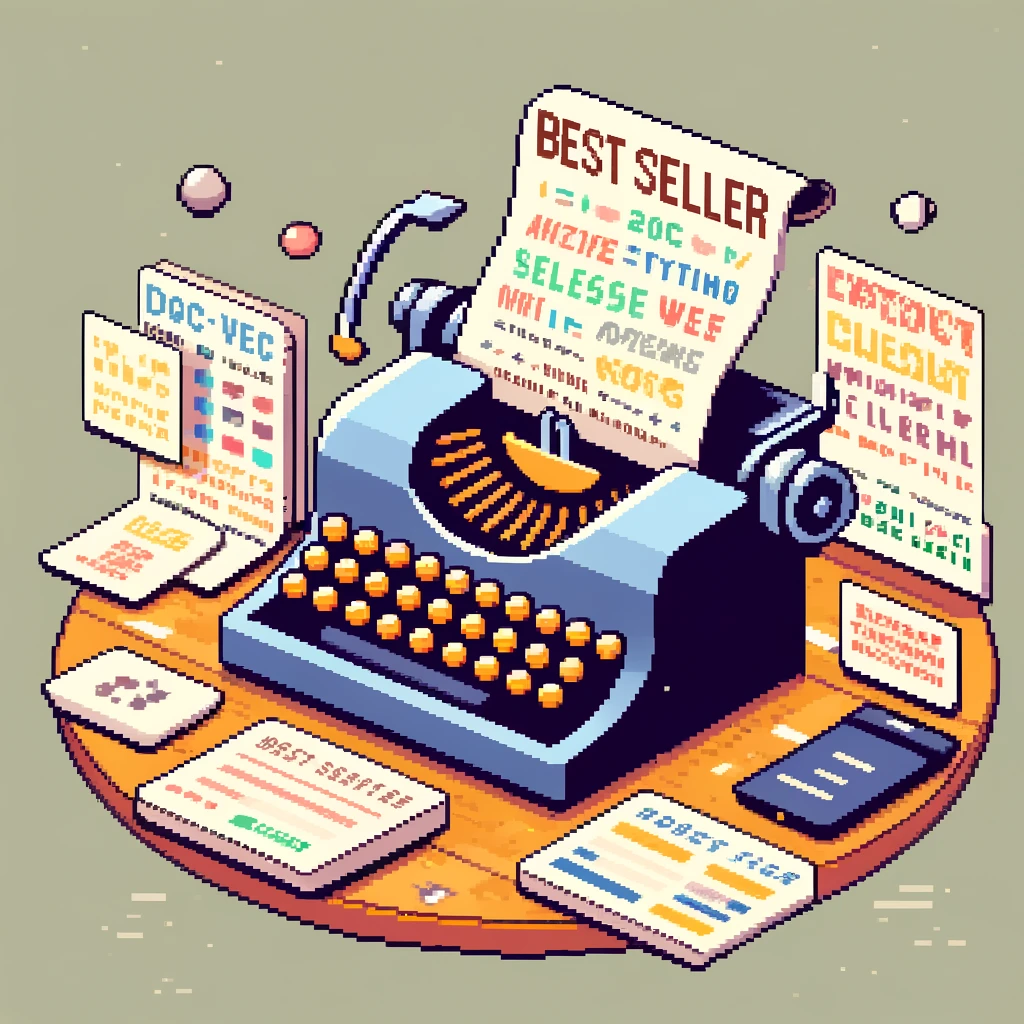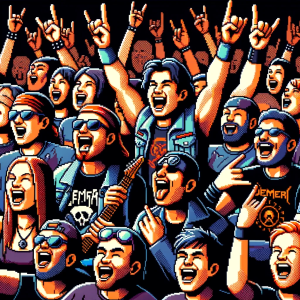
The Secrets of Best-Selling Books Through the Lens of AI
In the vast ocean of literature, what makes a book a best-seller?
This is a question that authors, publishers, and even readers have pondered for centuries. Now, thanks to advancements in artificial intelligence and machine learning, we’re getting closer to uncovering the secret sauce behind the books that top the charts. A recent study dives deep into this intrigue, employing sophisticated AI techniques to analyze the full-text content of books from the early 20th century to determine what could potentially set a best-seller apart from the rest.
The Journey to Understanding Literary Success
The study, conducted by da Silva et al. and published in PLoS ONE, uses the full-text content of books, rather than just abstracts or summaries, to understand what makes a book successful. The researchers used a dataset of books that were either tagged as best-sellers by Publishers Weekly or were not, to train their models.
Using a technique known as ‘bag-of-words’ alongside logistic regression, the team achieved an impressive classification accuracy of 75% in predicting whether a book would be a best-seller. This approach highlights how certain themes or styles of writing might resonate more effectively with a broader audience, potentially influencing a book’s market success.
The Language of Success
Traditionally, publishers have leaned towards certain genres under the assumption that they are more likely to achieve commercial success. This approach has shaped marketing strategies and influenced which books get the green light for publication. Yet, this study’s results indicate that the genre of a book alone is not a strong predictor of its success.
Instead, the intrinsic qualities of the book’s content—its themes, the complexity of its characters, the style of writing, and the emotional resonance of the narrative—play a more critical role.
The Content Matters More
The research highlighted that regardless of genre, books that became best-sellers shared certain textual characteristics that set them apart.
1. Lexical Richness and Diversity
Best-selling books often exhibit a higher degree of lexical richness. This means they use a wide variety of vocabulary, avoiding excessive repetition of words and phrases. Such richness can engage readers more deeply, as it often reflects a higher level of narrative complexity and sophistication.
2. Distinctive Narrative Voice
The voice used in best-selling books tends to be distinctive and strong. A unique narrative voice can help in creating a more immersive reading experience. The style and tone that resonate with readers often set best-sellers apart, providing a unique perspective or an engaging way of storytelling.
3. Emotional Engagement
Textual analysis shows that best-sellers frequently engage readers on an emotional level. This can be achieved through the use of emotive language, the development of relatable characters, or through scenarios that invoke strong feelings. Emotional engagement is key in retaining reader interest throughout a book.
4. Optimized Pacing and Structure
The pacing of the narrative and its structure also play significant roles in the success of a book. Best-sellers often have well-paced narratives that maintain reader interest with a balance of action, dialogue, and description. The structure tends to be coherent and well-organized, which facilitates smoother reading and better comprehension.
5. Themes and Universality
Best-selling books commonly explore themes that have universal appeal. These themes might include love, adventure, conflict, redemption, or personal growth. Such themes are likely to resonate with a broad audience, making the books more appealing across diverse reader groups.
6. Character Complexity
Characters in best-selling books are usually well-developed, with clear motivations, conflicts, and growth arcs. These complex characters make the stories more engaging and relatable, helping readers invest emotionally in the narrative.
7. Use of Dialogues and Descriptions
Effective use of dialogues and descriptions also contributes to the success of literary works. Best-sellers often skillfully balance dialogue and description to drive the narrative forward and develop the story’s world without bogging down the pace.
This focus on content over genre suggests that readers are drawn to books that offer them something novel and thought-provoking, something that challenges them or provides an escape, regardless of the traditional genre boundaries. This insight could encourage writers to focus more on the quality and distinctiveness of their content rather than conforming to the expected norms of specific genres.
Challenges and Implications
Predicting the success of a book is inherently challenging due to the subjective nature of literature and the varied tastes of readers. Moreover, external factors like marketing strategies and social trends also significantly impact a book’s success. However, this research provides a foundation for using AI to understand better and predict literary success, which could transform how books are marketed and even how authors approach their writing.
Future Avenues
The implications of this research extend beyond the literary world. Similar techniques can be applied to other forms of media and art to predict success and better understand public taste. This could eventually lead to AI-driven recommendations in literature and other creative fields, potentially influencing new trends and movements.
Engaging With the Future of Literature
As readers and enthusiasts of the written word, we find ourselves at an exciting juncture where technology meets tradition. By engaging with studies like these, we can gain a deeper appreciation of the books we love and perhaps uncover why certain stories resonate through the ages.
I encourage everyone interested in the future of literature and technology to dive into the full article for a more detailed understanding and to explore the visualizations and datasets that the researchers have made publicly available. Who knows? Perhaps the next book you pick up will be a best-seller, informed by the very algorithms that attempt to decode its essence.
Embark on a Scientific Adventure:
Dive into the world of science with our weekly newsletter! It’s perfect for teachers and science lovers who want to stay up-to-date with the newest and coolest discoveries. Each issue is filled with the latest research, major breakthroughs, and fascinating stories from all areas of science. Sign up for free and take your teaching and learning to the next level. Start your journey to becoming more informed and in tune with the constantly changing world of science. Subscribe today!
About Me!
Jon Scaccia, with a Ph.D. in clinical-community psychology and a research fellowship at the US Department of Health and Human Services with expertise in public health systems and quality programs. He specializes in implementing innovative, data-informed strategies to enhance community health and development. Jon helped develop the R=MC² readiness model, which aids organizations in effectively navigating change.



